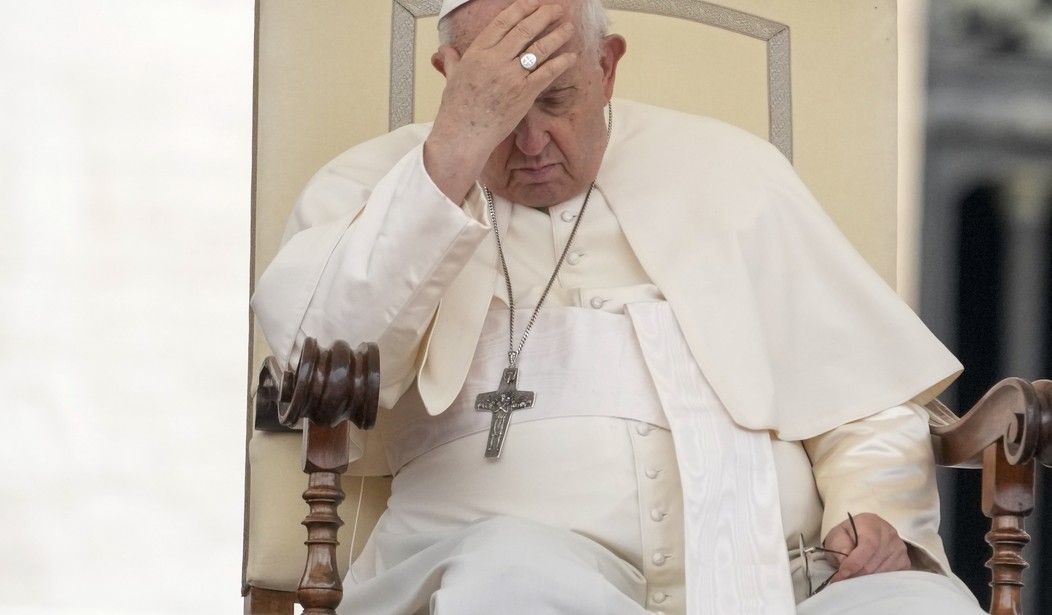You might be thinking this article’s headline is the start of a bad joke. You’d be right, except it’s no laughing matter.
It seems a day doesn’t go by without hearing about someone who’s being attacked for saying things everyone knows are true, and this past week showed just how widespread this cancer has become, as each of these individuals or entities has tried to silence their critics for doing just that.
Last Saturday, Pope Francis removed Bishop Joseph Strickland from his post overseeing the Diocese of Tyler, Texas, ostensibly for his poor governance of the diocese but more likely for his frequent use of social media to share controversial opinions and even criticize the pope.
Strickland has accused President Biden of being a “fake” Catholic over his support for abortion, denounced a prominent pro-LGBTQ priest’s embrace of “Pride Month” as “blasphemous,” and criticized Francis for “undermining the Deposit of Faith” by failing to adhere to Catholic doctrine regarding these issues.
Strickland was visited this summer by representatives from the Vatican conducting a formal investigation into his leadership of the diocese, and he was discussed at a September 9 meeting between Francis and two top cardinals. When asked to resign on November 9, Strickland refused, prompting the pope to remove him. Bishop Joe Vásquez, who oversees the Diocese of Austin, Texas, will serve in Strickland’s stead until a new bishop is appointed.
In an interview with LifeSiteNews, Strickland explained his removal by saying there are “forces in the Church right now [that] don’t want the truth of the gospel.”
“I threatened some of the powers that be with the truth of the gospel,” he added. “That will not change. That cannot change. It’s perennial, it’s everlasting. It’s glorious. And if you want it to change, then I’m a problem.”
Then, on Monday of this week, UK Prime Minister Rishi Sunak sacked Home Secretary Suella Braverman after she characterized pro-Palestinian protests as “hate marches” and criticized police for turning a blind eye to protesters' unruly behavior after previously responding aggressively to protests against lockdowns and the country’s immigration policies.
A protest planned for November 11 — commemorated as Remembrance Day in Great Britain and Veterans Day in the U.S. to mark the end of hostilities during World War I — turned violent when members of the nationalist English Defence League clashed with police, and some critics blamed Braverman for contributing to the unrest.
Following the protest, Braverman decried the violence and antisemitism on display during the protest in a series of posts on Twitter/X.
The sick, inflammatory and, in some cases, clearly criminal chants, placards and paraphernalia openly on display at the march mark a new low. Antisemitism and other forms of racism together with the valorising of terrorism on such a scale is deeply troubling. 2/3
— Suella Braverman MP (@SuellaBraverman) November 12, 2023
The day after she was fired, Braverman lashed out at Sunak for failing to fulfill his promise to “stop the boats,” a reference to the steady influx of asylum seekers the country has seen in recent years, and not doing enough to “help stem the rising tide of racism, intimidation and terrorist glorification threatening community cohesion.”
Finally, on Tuesday of this week, news outlets reported that two University of Wyoming alumni who were members of the Kappa Kappa Gamma sorority were stripped of their membership after fundraising for a lawsuit aimed at removing transgender student Artemis Langford as a member of the local chapter.
Langford was inducted as a sorority member last year at the urging of national leadership, and according to the lawsuit’s initial complaint, he’s been observed becoming sexually aroused while checking out other members, asked them intrusive personal questions, and made efforts to get members he believes are “transphobic” removed from the sorority.
The lawsuit is pending in the U.S. Tenth Circuit Court of Appeals after being dismissed by a federal judge because, although the sorority’s bylaws restrict membership to women, they don’t define the term “woman.”
To be fair, it’s a complicated determination only a biologist is qualified to make. At least that’s what Harvard-trained Supreme Court Justice Ketanji Brown Jackson said during her confirmation hearing last year.
Patsy Levang and Cheryl Tuck-Smith, the two alumni removed from Kappa Kappa Gamma membership, have been active with the sorority for nearly fifty years.
Levang, a former president of the sorority’s foundation, said that although she is “saddened” about her removal, she “will not be quiet about the truth.”
Tuck-Smith, on the other hand, said she is “disturbed that KKG has become a political tool rather than an organization that promotes women,” adding that she will continue to speak up about the “dangers of DEI.”
Ah, yes. Diversity, equity, and inclusion. It’s a nice platitude, but if you say anything that upsets the wrong people, you’re kicked to the curb.
It wasn’t too long ago in our society that individuals who expressed controversial opinions were simply criticized by their opponents. Now, they’re denied access to the avenues of communication and removed from their jobs or positions of influence. With the way things are going, I fear even more drastic measures to quash dissent await us in the near future.
As Jesus said to Nicodemus, a member of the ruling elite in first-century Judea, “the light has come into the world, and people loved the darkness rather than the light because their works were evil.”
You know what they did to Him.
The world is getting darker — no institution is immune from the compulsion to silence the truth. While lots of people are too afraid to do anything about it, there are still a courageous few who are willing to push back.
If an outspoken bishop, a principled politician, and two uncompromising sorority sisters can inspire more people to resist the darkness and stand up for what’s right, the joke will be on those who tried to shut them up.









Join the conversation as a VIP Member